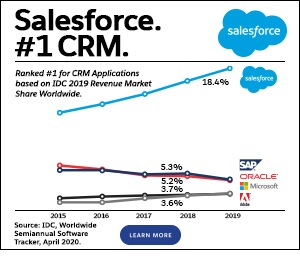If you stop and take a look at the effect that the Covid-19 lockdown is having on crime statistics, you will gratefully observe a reduction in reported theft and burglary but notice an increase in drug-related arrests due to more proactive policing and domestic issues. During the March to May lockdown period in London alone there were on average 100 domestic abuse-related arrests per day.
Each year nearly 2 million people in the UK suffer some form of domestic abuse so providing information and the means to access support is now as important as ever.
Today, non-urgent crime is increasingly being reported via the web…This online experience is slowly improving with every new release of capability but it is still only a one-way reporting service instead of being a 2-way citizen-focused platform for engagement
The vulnerable people in our society and victims of abuse will continue to reside in our society, without the help from support agencies. Information and the means to access support is now as important as ever.
Public Confidence
Engaging with your local Police Force has typically been to report a crime, be it an emergency or non-emergency, and voice has been the best channel due to its speed. Whilst this will always be the case for emergency calls, callers to the 101 non-emergency number can often experience a delay due to overwhelming public demand.
Today, non-urgent crime is increasingly being reported via the web with 20 of the 43 police forces (at time of writing) now live with Single Online Home, therefore making it accessible to more than 33 million of the UK’s population. This online experience is slowly improving with every new release of capability but it is still only a one-way reporting service instead of being a 2-way citizen-focused platform for engagement.
It is this type of community engagement which enables a Police Force to strengthen its relationship with the local community and to encourage stakeholder engagement. It also improves the quality and consistency of feedback in both directions on local priorities and enables the resourcing of staff to be applied to areas of concern. Typically, these sessions have been face to face in public meetings where Police staff have the opportunity to hear about their citizen’s concerns at first hand.
Virtual Communities
Creating a community engagement portal that can act as a virtual neighbourhood group could provide the type of information that forces offer but in a single place
Creating a community engagement portal that can act as a virtual neighbourhood group could provide the type of information that forces offer but in a single place. Multilingual content for different community demographics is also an option so that people can access information from a smartphone, tablet or a desktop PC.
One further step is to consider how we as a society consume data, which is mostly mobile and via smartphones. The creation of Police centric applications for local community use is a developing theme that has the ability to personalise content dependent on a profile.
Consolidating all of the touchpoints between the citizen and Police is a changing beast with the advent of new applications and capabilities on digital platforms. Engagements across social media, webchat, instant messaging, and websites are coupled with traditional channels such as voice and mail, but how can these touchpoints be married together to build insights?
Social media platforms such as Twitter, Facebook and Instagram have typically been used to broadcast information to citizens with a ‘one size fits all’ type of message such as drink-drive campaigns. With the change in social legislation that comes into effect later in 2020, a citizen can choose their channel of choice to engage with the Police and if this is via a social channel these messages need to be spotted, triaged and acted upon. Due to the change in this legislation, these engagements need to be time and date stamped and the course of actions need to be retained for future audit purposes.
 This is a fundamental change in the way social media platforms are being used today and the considerations that go with this need to be addressed.
This is a fundamental change in the way social media platforms are being used today and the considerations that go with this need to be addressed.
Where should the responsibility for social media reside? Corporate Communications teams are typically 9-5:30 roles, Monday to Friday, but with this change, the management of these channels will become a 24/7 role which is why this makes sense for the contact centre to be incorporated into this process. How will this demand be managed? What SLA will citizens expect? How will this impact voice calls to 999 and 101?
Existing public confidence or engagement meetings that are conducted face to face are a vital means to obtain a citizen perspective on Police performance and to build and maintain trust. Communities have demographics that differ in nationality, language and diversity so it is difficult to shape communications to meet these needs. These communications are often one message to the same audience regardless of demographic. Providing on-line community portals with multilingual capability enables this messaging to be tailored and personalised to the citizen by engaging them in the consumption of service which demonstrates listening to feedback, develops the relationship with communities and uses this as a mechanism to strengthen bonds with these different demographic groups. Perhaps a 21st century virtual community Policing proposition?
Consolidation
Technology-wise, we recently learnt that excel is not a database so a citizen relationship management system (CRM) is the best means to consolidate, store and manage these community touchpoints.
A citizen relationship management system provides a 360-degree view of communities and consolidates these touchpoints into a single platform that retains a history of engagement for a definable period of time
CRM references and comparisons with Command and Control platforms exist due to the way in which the term CRM is inappropriately used. These systems serve Police well to dispatch officers but they do not have the flexibility and scalability to serve the different use cases across these channels for the future. The same can be said for Records Management Systems that process the crime, intelligence and custody information. But where can information be stored that isn’t related to a crime and may not be of importance today but will be relevant a week, month or year later?
A citizen relationship management system provides a 360-degree view of communities and consolidates these touchpoints into a single platform that retains a history of engagement for a definable period of time. This platform is scalable, is future-ready and has the flexibility to connect to existing Police systems via API interfaces to present data in a single pane of glass.
This platform is available today from Salesforce and encompasses all of the elements that have been described and we feel that this will not only help reduce demand on Policing but also direct demand to the most appropriate channel for it to be resolved. This has a productivity and cost-benefit that our analysis shows runs into millions of pounds per year.
Please get in touch with me at [email protected] and we can work through these figures with you.
As we head into a winter that has the added complications of regional and a national lockdown, nobody knows what the new normal will be. We can however make strides to ensure that victims of crime and vulnerable people have the capability to reach out for help.




I’m getting mightily annoyed with the private sector telling the police how they should work – most police forces are doing what this profit chasing [a word breaking Policing Insight’s comment rules has been removed here by our editorial team] is advocating already – and anyone who has been involved in procuring from such companies know they are probably flogging yesterdays tech ready for tomorrow – Police Insight is sponsoring such culture
But “public sector policing” doesn’t work in isolation, James964, there is much in private sector, in academia, and in wider third sector that is vital for policing’s smooth functioning and development. As Publisher of Policing Insight, I am determined that we will continue to present a wide range of positive and constructive perspectives on policing, no matter where in the world they originate from, and this Salesforce article is one such perspective.